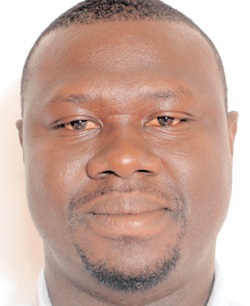In the bustling corridors of Asomdwekromanian politics emerges a figure both rare and refreshing: Dr. Mahamudu Bawumia, the bridge builder, the unifier, the man who sips ‘sobolo’ with Christians and breaks fast with Muslims.
The calabash, a humble yet versatile gourd, holds a special place in Asomdwekromanian tradition. Its rounded form, often transformed into bowls, cups, or containers, symbolises sustenance and community. Imagine an open-air market in Nkrankrom, where vendors display their wares atop woven mats. There, nestled among vibrant fruits and spices, you will find calabashes brimming with sobolo or ‘asaana’. The calabash, like Dr. Bawumia’s leadership, bridges generations, connecting the past to the present in a seamless flow of nourishment and heritage.
Picture this: Dr. Bawumia, dazzling in his kente cloth, holding a calabash – the earthy vessel that transcends generations. His upbringing in a Muslim family, where the call to prayer echoed through sun-drenched courtyards, taught him the rhythm of faith. But wait! There’s more. His calabash isn’t just for sobolo; it is a metaphorical cup of unity. As he sips, he imagines the sweet nectar of collaboration, the tang of understanding, and the kick of progress. The calabash nods in approval – it knows a leader when it sees one.
Ah! Sobolo the pink tonic that dances on taste buds and cools sun-kissed foreheads. Brewed from dried roselle petals, this hibiscus drink is a typical Asomdwekromanian refreshment.
Imagine a bustling street corner, where a vendor serves sobolo into calabash cups. The tangy-sweet notes mingle with ginger, cloves, and a hint of citrus. As the sun sets over Nkrankrom, friends gather, clinking their calabash vessels in celebration of life’s simple pleasures.
Sobolo embodies Dr. Bawumia’s inclusive spirit, inviting all to partake in its communal embrace. Dr. Bawumia, ever the diplomat, raises his calabash high. “To unity!” he declares, and the crowd echoes, “To unity!” The hibiscus petals spin, whispering tales of centuries past. “We are all in this brew together,” they murmur. Dr. Bawumia grins. “Just like politics,” he says. “A little ginger, a dash of cloves, and a whole lot of empathy.” The calabash nods again as it has seen leaders come and go, but this one is a different gravy.
Now, let’s talk waakye – a symphony of rice and beans, harmonised by the sun’s warmth and the chef’s skill. Picture a bustling food stall in Oseikrom, where the aroma of waakye breezes through the air. The rice, stained deep brown by sorghum leaves, nestles alongside tender cowpeas. A spoonful of shito (spicy black pepper sauce) adds a fiery crescendo. And what vessel holds this cooking masterpiece? None other than the trusty calabash, its curves holding tradition and flavour. Dr. Bawumia’s leadership, like waakye, blends diverse elements into a cohesive whole, celebrating unity and resilience.
Dr. Bawumia, sleeves rolled up, stirs the pot. The rice, like his policies, absorbs the flavours around it. The cowpeas? They are the opposition, sometimes tough, but essential for balance. And the shito? Well, that is the spicy truth, the unembellished reality. As he serves waakye in calabash bowls, he whispers, “Unity is a feast.” The calabash giggles as it has seen leaders spice things up before, but this is a master chef at work.
Dr. Bawumia, the Muslim-Christian servant, dances between faiths like a skilled drummer. His calabash overflows with wisdom, sobolo, and waakye. As Asomdwekrom’s sun sets, casting shadows on the savannah, he raises it high. “To harmony,” he toasts. The calabash, now a confidante, clinks back. “To progress.” And in that moment, Asomdwekrom nods – a nation stitched together by calabashes, sobolo, and the indomitable spirit of a leader who knows that unity isn’t just a buzzword; it is the rhythm of a nation’s heartbeat.
When Dr. Bawumia steps up for interfaith dialogue, it is like he is hosting the ultimate potluck dinner. He has got Christians bringing the bread, Muslims bringing the dates, and everyone is invited to the table. It is not just about swapping recipes but also stories, where every dish (and deity) is welcome!
His approach to leadership is like being the captain of a very diverse soccer team. He knows that the striker and the goalie may pray differently, but when it comes to scoring goals for national unity, they are all on the same side. Plus, he has got the best halftime speeches that could turn any skeptic into a believer of peace and collaboration!
Dr. Bawumia doesn’t just walk the talk; he dances it. And in this dance of destiny, Asomdwekrom grooves to the rhythm of prosperity, with Dr. Bawumia showing off some serious interfaith dance moves!
So, as Asomdwekrom flips the page to its next chapter, Dr. Bawumia’s legacy is like a lighthouse guiding ships across a sea of diverse beliefs, straight into the harbour of a united future. And if that future had a soundtrack, it would be a catchy tune that gets everyone, no matter their faith, up and dancing to the beat of shared success.
Humour aside, it’s clear that Dr. Bawumia’s dedication to fostering understanding and respect among different religious groups is a testament to his vision of a cohesive and thriving society. His efforts remind us that while we may have different beliefs, our shared values can unite us in building a brighter future for all.
As we sip sobolo from calabash cups and savour waakye’s medley of tastes, let us remember that leadership, too, is a blend. It is an artful fusion of empathy, collaboration, and vision. Dr. Bawumia, much like Asomdwekrom’s cooking delights, nourishes the soul of a nation.
So, raise your calabash vessels, toast to unity, and let the flavours linger as a tribute to a leader who bridges divides and stirs our collective spirit toward progress and prosperity.
See you next week for another interesting konkonsa, Deo volente!

